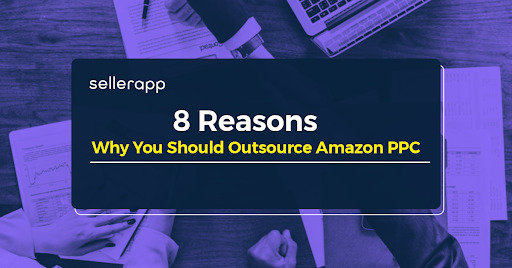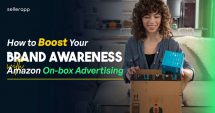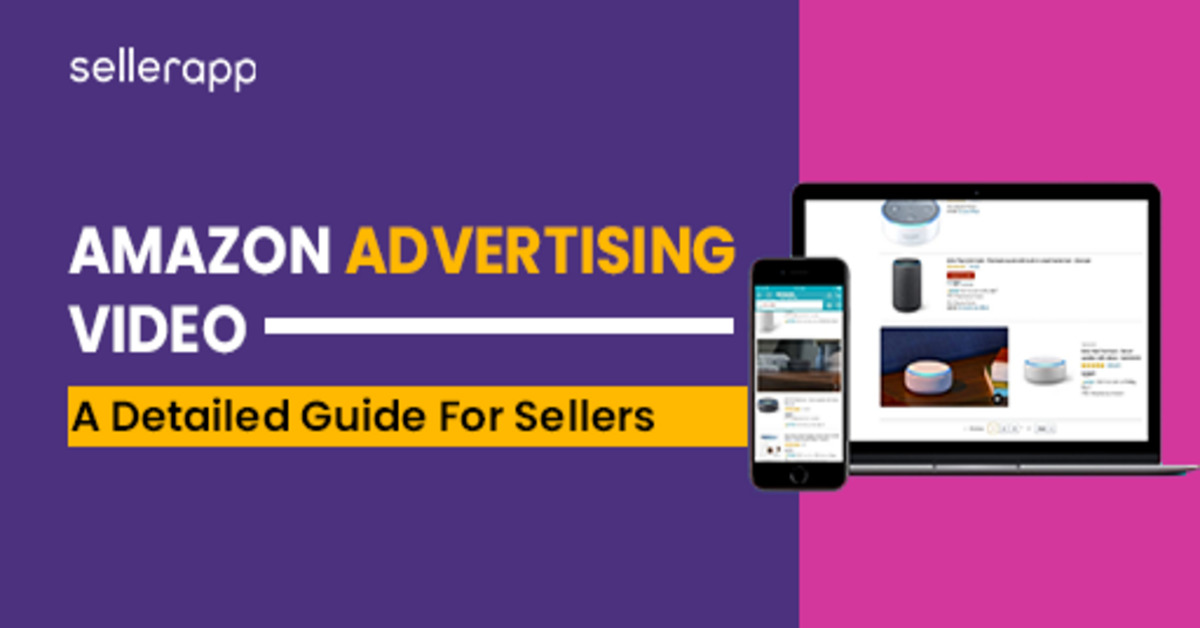The Ultimate Guide to Amazon Performance Advertising: Everything You Need to Know

Amazon is one of the world’s largest eCommerce marketplaces in the world with over 300 million prime customers and 2.2 billion monthly visitors.
Naturally, Amazon gives sellers access the world access to a large audience of sellers to market their products.
However, Amazon faces one problem.
With thousands of competitors selling similar kinds of products, it becomes difficult to get your product out in front of the target customers.
This is where Amazon performance advertising comes in!
It helps boost product visibility and increase sales on Amazon. And this blog will tell you everything you need to know about Amazon performance advertising.
A quick peek into the article:
- What is Performance Marketing on Amazon?
- Types of Amazon Performance Advertising
- Sponsored Products (SP)
- Sponsored Brands (SB)
- Sponsored Display (SD)
- Where Do Ads in Performance Advertising Campaigns Appear?
- What Are the Benefits of Amazon Performance Advertising?
- How to Get Started With Amazon Performance Advertising?
- Final Thoughts
What is Performance Marketing on Amazon?
Amazon performance marketing is a type of advertising solution that helps to promote your product and brand on the marketplace. It helps to improve your products’ discoverability, drive sales, and improve organic ranking.
Amazon performance advertising can help your brand stand out from the competition and get your products to the top of the search results.
Here are a few additional benefits of Amazon performance advertising:
- Improve brand awareness
- Reduce sales cycle by constant exposure
- Improve sales velocity & product visibility
- Improve organic ranking
- Gain consumer insights
Types of Amazon Performance Advertising
Amazon offers four major types of performance advertising on Amazon:
- Sponsored Products (SP),
- Sponsored Brands (SB),
- Sponsored Display (SD), and
- Amazon Demand-Side Platform (Amazon DSP).
Each type has its features, benefits, and best practices. Let’s take a look at them in more detail.
Sponsored Product Ads
Sponsored product ads are the most common ads that show up on the search results and product detail pages.
Unlike other forms of PPC, sellers don’t need to be brand-registered to create sponsored product ads.
The Sponsored Product ads usually appear at the top of the Amazon search result page, throughout the organic search result page, and inside the product listing page.
However, Amazon has announced that Sponsored Product ads can now be displayed on premium apps and websites like Pinterest, BuzzFeed, Hearst Newspapers, Raptive, Ziff Davis, Lifehacker, Mashable, etc.
Sellers don’t need to take any specific actions to appear on these sites. And sellers can see the performance of these placements from the Sponsored Products placement report.
Amazon provides two types of targeting options for Sponsored Products ads.
Automatic Targeting:
In this option, Amazon targets keywords based on the keywords existing in the product listing. It’s an excellent way to start advertising on Amazon, especially if you don’t know where to start.
Manual Targeting
In this option, you can choose keywords or products to target, set custom bids, and specify keyword search parameters such as broad match, phrase match, or exact match. Manual targeting gives sellers more control over the advertising spend and performance.
Under the manual targeting campaign, you have two types of targeting:
- Keyword Targeting: In keyword targeting, you can choose specific keywords to target with your ads.
- Product Targeting: Here, you can target specific products to make your ads appear under the “Products related to this item” section on the targeted product.
Sponsored Brand Ads
Sponsored Brand ads, previously known as Amazon Headline Search Ads, offer advanced advertising options for sellers who are registered in the Brand Registry program.
These ads are designed to enhance brand awareness by directing traffic to the custom Amazon storefront.
Similar to Sponsored Product ads, Sponsored Brand ads also offer three ad formats:
Product Collection:

Product collection ads are the most common type of Sponsored Brand ads. They allow you to display up to three products from your catalog, along with your brand logo and a custom headline.
Usually, they show up above the Amazon search results.
When shoppers click on your ad, they are taken to a dedicated brand storefront where they can see more details about your products and brand. Product collection ads are ideal for driving traffic to your store and boosting newer or low-performing products by advertising them with the best-selling products.
Spotlight

Spotlight ads are a newer type of Sponsored Brand ads that lets you highlight multiple product categories in the ad, along with your brand logo and a custom headline.
However, keep in mind that the Store Spotlight ad format is only available to shoppers if you have your custom storefront on Amazon. Spotlight ads are great for launching new products or promoting best-sellers.
Video Ads

Video ads are another advanced Sponsored Brand ad type that lets you showcase your brand and products through engaging video content. You can upload your video or use Amazon’s video builder tool to create one.
The Amazon video ads appear below the fold on the search results page and begin playing when they cover 50% or more of the screen. When shoppers click on your video ad, they are taken to the product detail page or a landing page of your choice.
Video ads are perfect for telling your brand story and demonstrating your product features and benefits.
Learn more about it from the Sponsored Brand Ads guide
Sponsored Display Ads
Sponsored Display is a relatively new addition to Amazon’s self-service advertising toolkit.
It offers advertisers the ability to engage with relevant audiences both on and off the Amazon platform.
Unlike Sponsored Products and Sponsored Brands, this tool allows advertisers to target potential customers based on their interests, shopping behaviors, and previous interactions with the advertised product’s detail page.
To access Sponsored Displays, sellers or vendors must be brand-registered on Amazon.
Instead of focusing on keywords or competitors’ products, advertisers can target audiences based on their interests and browsing habits with Sponsored Display ads.
This opens up the opportunity to retarget customers who have previously viewed the product details page or purchased similar products.
Sponsored Display offers three main types of targeting options:
- Product Targeting Ads: This allows you to target customers browsing your products, competitors’ products, or related categories. It also places ads directly on competitors’ listings.
- Audiences – Views Remarketing: Use this option to re-engage your target audience who have viewed your product details page or similar products and categories. The look-back window for this option is 30 days.
- Audiences – Interests: This targeting mode is ideal if you want to boost your brand awareness and recognition. With this option, you can reach customers who have browsed or are interested in similar products within the segment. The look-back window for this targeting is 90 days.
Learn more about it from the Sponsored Display Ads guide.
Where Do Ads in Performance Advertising Campaigns Appear?
In Amazon’s performance advertising campaigns, ads can appear in various prominent locations across the platform, aiming to maximize visibility and engagement.
Sponsored Product Ads
Most Sponsored Product ads appear at the top of the search result page and throughout the rest of the search result pages.

Apart from that, Sponsored Product ads also appear on the product details page of similar or competing products.

Sponsored Brand Ads
Search Results: Sponsored Brand ads are usually featured at the top of the search results page. This placement helps in promoting brand visibility and driving consideration among shoppers.

Apart from that, they are also showcased in the middle and bottom of the search result page.
Sponsored Display Ads
On and Off Amazon: Sponsored Display ads have the unique advantage of appearing both on and off the Amazon platform. On Amazon, they can be displayed on product detail pages, search results pages, and other relevant locations.
Off Amazon, these ads can be shown on third-party websites and apps like Twitch, Prime Video, and Alexa, extending the reach beyond the confines of the Amazon ecosystem.
What are the Benefits of Amazon Performance Advertising?
Amazon performance advertising is a powerful way to boost your online presence and reach more customers. Here are some of the benefits of using this service:
Increased Visibility
Performance advertising allows your products to be featured on top of the search results and product detail pages. It enhances visibility among potential customers and increases sales.
Precise Targeting
Advertisers can target specific keywords, customer interests, and demographics with performance advertising. It ensures that their ads reach a relevant audience likely to convert.
Enhanced Brand Awareness
For brand-registered sellers, Sponsored Brands allow sellers to promote their brand and products to shoppers. This helps in reinforcing brand awareness among shoppers and contributes to long-term brand recognition.
Cross-Platform Reach
Sponsored Display ads have the unique advantage of extending beyond the Amazon platform. Advertisers can reach potential customers on third-party websites and apps, increasing the overall reach to new-to-brand shoppers.
How to get started With Amazon Performance Advertising?
Getting started with Amazon performance advertising is not that difficult. It involves a series of steps, including:
- Step 1: If you don’t already have one, sign up for an Amazon Advertising account. You can use your existing Amazon Seller or Vendor Central account or create a new one.
- Step 2: Optimize your listing with a detailed title, description, bullet points, A+ content, and more to make it discoverable and desirable.
- Step 3: Ensure that you are brand-registered on Amazon. Otherwise, you won’t be able to utilize a lot of amazing advertising features, including Sponsored Brand ads.
- Step 4: Clearly define your advertising goals. Whether you aim to increase sales, drive brand awareness, or promote new products, understanding your objectives will guide your campaign strategy.
- Step 5: Conduct thorough keyword research to identify relevant keywords related to your products. Use tools like SellerApp Keyword Research and Reverse ASIN to discover high-performing keywords to target with advertising.
- Step 6: Choose the ad type that aligns with your goals and budget. Sponsored Brands are suitable for brand awareness, while Sponsored Products are effective for promoting individual products.
- Step 7: Determine your daily or campaign budget based on your business and profit goals.
- Step 8: Depending on the ad type, choose your targeting options. For Sponsored Products, you can choose between keyword and product targeting. For Sponsored Brands and Sponsored Display ads, consider targeting by audience interests, product categories, or specific products.
- Step 9: Once your settings are configured, launch your campaign.
Regularly review the performance metrics and adjust your campaigns based on data, including click-through rates (CTR), conversion rates, ACoS, and (ROAS). Optimize your keyword targeting and bidding strategies to improve campaign effectiveness.
Final Thoughts
This Amazon performance advertising guide should have given you a better understanding of different types of Amazon advertising and how to create a successful PPC campaign.
If you are still looking for assistance with creating Amazon performance advertising, SellerApp PPC experts can help. Our team of dedicated experts has helped over 20,000 brands create and manage PPC campaigns worth $1.8 billion. And we can do the same for you, too!
Schedule a call with us if you have any further questions.
Happy Selling! 🎉
Additional read:
How to Join Amazon’s Small Business Academy
How does AmazonBasics impact Amazon Seller?
Step-By-Step to Become an Amazon-Partnered Carrier
Amazon Click Fraud: Protecting Ad Budget and Beyond











Jaxon
December 11, 2023Your blog provided us with valuable information to work on. You have done a marvelous job!
Clare Thomas
March 7, 2024Thank you for your feedback.
Nautica
December 12, 2023I like this blog!! It’s a masterpiece for amazon sellers!!
Clare Thomas
March 7, 2024Very happy to hear that.